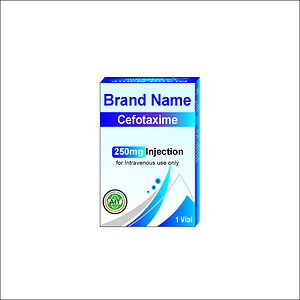Alliance of Infinity Trade
Ketorolac
Introducing AIT Pharmaceuticals Division’s Ketorolac Range
Welcome to AIT Pharmaceuticals Division, where we are dedicated to enhancing healthcare through the provision of high-quality pharmaceutical products. Our Ketorolac Range offers effective pain relief solutions to improve patient well-being and comfort.
Drug Classification:
Ketorolac belongs to the class of medications known as nonsteroidal anti-inflammatory drugs (NSAIDs). It exhibits potent analgesic, anti-inflammatory, and antipyretic properties by inhibiting the synthesis of prostaglandins through the inhibition of cyclooxygenase enzymes (COX-1 and COX-2).
Share
Formulations:
- Ketorolac Liquid Ampules:
- Strength: Each ampule contains 30 mg of Ketorolac
- Product Form: Liquid solution for injection
- Packing Specifications: Each pack contains 5 ampules for convenient administration
Indications:
Ketorolac is indicated for the short-term management of moderate to severe acute pain, including:
- Postoperative pain following surgical procedures
- Painful conditions such as renal colic, musculoskeletal injuries, and dental pain
- Pain associated with menstrual cramps
Usage:
- Ketorolac Liquid Ampules are intended for intravenous or intramuscular administration by healthcare professionals.
- It is recommended for short-term use only, typically up to 5 days due to the risk of gastrointestinal and renal adverse effects.
- The choice of route of administration and dosage regimen should be individualized based on the patient’s pain intensity, medical history, and response to treatment.
Dosage:
- For adults, the recommended initial dose of Ketorolac is typically 30 mg administered intravenously or intramuscularly.
- Subsequent doses may be administered every 6 hours as needed, not exceeding a total daily dose of 120 mg for intravenous use or 90 mg for intramuscular use.
- Dosage adjustments may be necessary in elderly patients, patients with renal impairment, and those at risk of gastrointestinal bleeding.
Pharmacokinetics:
- Absorption: Ketorolac is rapidly absorbed following intramuscular or intravenous administration, with peak plasma concentrations achieved within 10 to 20 minutes.
- Distribution: Ketorolac has a moderate volume of distribution and binds extensively to plasma proteins.
- Metabolism: Ketorolac undergoes extensive hepatic metabolism, primarily via glucuronidation, resulting in inactive metabolites.
- Elimination: The elimination half-life of Ketorolac is approximately 5 to 6 hours, with the majority of the drug excreted renally as metabolites.
Pharmacodynamics:
- Ketorolac exerts its analgesic, anti-inflammatory, and antipyretic effects by inhibiting prostaglandin synthesis through the blockade of COX enzymes, thereby reducing pain and inflammation.
Side Effects:
- Common side effects of Ketorolac may include:
- Gastrointestinal disturbances such as nausea, dyspepsia, and abdominal pain
- Renal impairment, including fluid retention and edema
- Hematological effects such as anemia and thrombocytopenia
- Injection site reactions and transient elevations in liver enzymes
- Serious adverse reactions such as gastrointestinal bleeding, renal failure, and hypersensitivity reactions may occur, particularly with prolonged use or in patients with pre-existing conditions.
Experience the efficacy and reliability of AIT Pharmaceuticals Division’s Ketorolac Range for effective pain management. For more information, please contact us. We are committed to providing superior pharmaceutical solutions to healthcare professionals worldwide.







Reviews
There are no reviews yet.